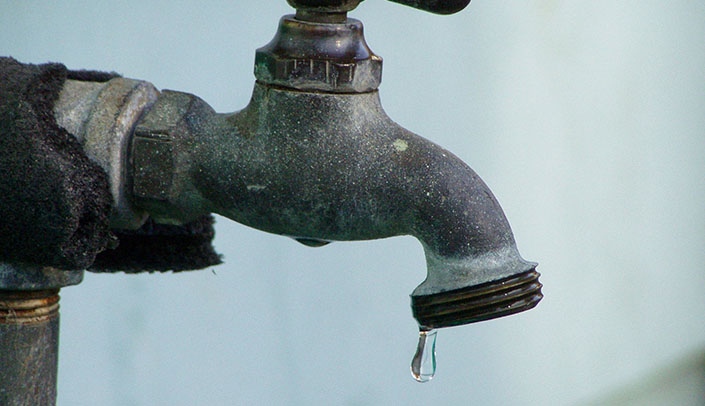Have you checked out the Every Drop Counts page? You and your colleagues have come up with some great ways to conserve water at home and at work — everything from reporting drips to Facilities Management and Planning to turning the faucet off while cleaning a dish to using water you would have dumped in the sink to water a plant. Check out the list — it’s divided into sections based on the type of work you do at work and home.
As you hopefully know, LiveGreen has been asking for your help conserving water with our spring campaign. The med center has set an ambitious goal to achieve a neutral water footprint by 2030. That means using the same amount of water (or less) than the annual amount that falls on campus as rain and snow. To achieve this goal, the med center needs to reduce water use to 104 million gallons per year. Currently, we use about 188 million gallons per year. That sounds like a big reduction, but we’ve already made great strides with a 17% reduction from our 2010 baseline of 225 million gallons — and we did that while adding new buildings.
While our water goal was based on being good stewards, as clean water is critical for good heath, this campaign is timely since MUD recently announced rate increases of 19% for commercial water use and 7% for residential customers. Conserving water allows us to put resources to better things and saves money at home, too. The more people who conserve water, the bigger the effect and the better for everyone. While conserving water is important, we will never compromise handwashing technique or other infection control practices.
Anytime you turn on a faucet, water a plant/lawn or take a shower, you are accounting for your “direct” water use. This is the amount of water that will show on your utility bill at home (or at the med center). It’s the easiest to track and, generally speaking, the easiest way to see an impact. If everyone in your household starts taking a five-minute shower and you only water your lawn when it needs it, you will see the amount of water used on your monthly water bill go down — along with your cost.
Your lifestyle choices use water in ways you don’t see on your bill. Stay tuned for next week’s article on indirect water use. It’ll shock you.
